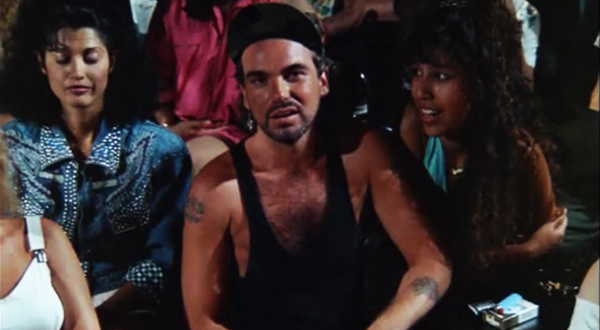Today in Movie Culture: Lego 'Suicide Squad' Trailer, 'Kubo and the Two Strings' Interactive Map and More
Here are a bunch of little bites to satisfy your hunger for movie culture:
Redone Trailer of the Day:
It’s been a while since we saw a trailer remade with Lego, so here’s one for Suicide Squad (via Geek Tyrant):
[embedded content]
Movie Trilogy Recap of the Day:
With a new Batman movie out this week (sort of), here’s a rap recap of the Dark Knight trilogy:
[embedded content]
Movie Comparison of the Day:
Now it makes sense why Batman v Superman: Dawn of Justice is bad: Couch Tomato shows how it’s the same movie as Iron Man 2:
[embedded content]
Interactive Movie Promotion of the Day:
Before seeing Kubo and the Two Strings, explore its world with this very cool interactive map:
[embedded content]
Vintage Image of the Day:
Billy Bob Thornton, who turns 61 today, made one of his first movie appearances in the 1989 Adam Sandler comedy Going Overboard, pictured below:
Supercut of the Day:
Ranker celebrates the art of door slamming in movies in this noisy supercut:
[embedded content]
Video Essay of the Day:
Jacks Movie Reviews explores the idea of a protagonist or major likelable character dying in a movie in the following spoiler-heavy video essay (via One Perfect Shot):
[embedded content]
Cosplay of the Day:
We’re still catching up with some of our favorite cosplay from Comic-Con, including this great dinosaur Deadpool mashup getup (via Fashionably Geek):

Filmmaker in Focus:
Beyond the Frame spotlights the movies that influenced the work of Wes Anderson side by side with the homage (via One Perfect Shot):
[embedded content]
Classic Trailer of the Day:
Today is the 10th anniversary of Talladega Nights: The Ballad of Ricky Bobby. Watch the original trailer for the Will Ferrell comedy below.
[embedded content]
and



